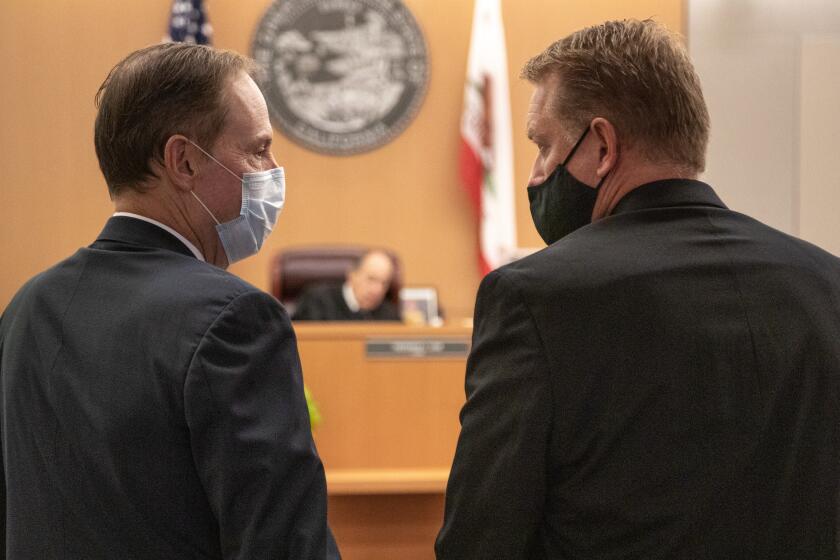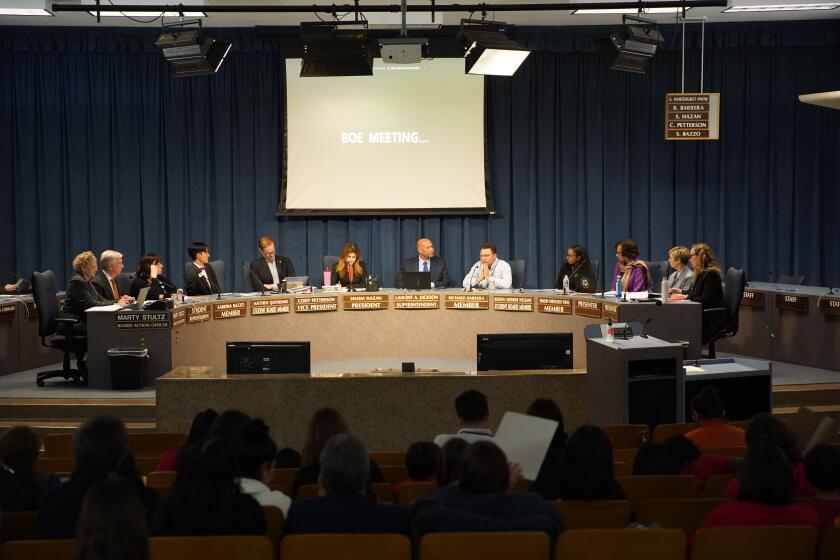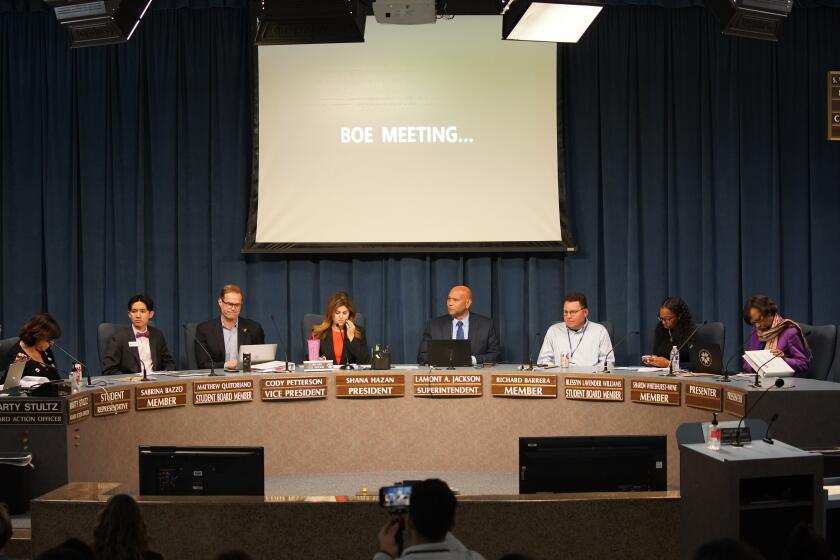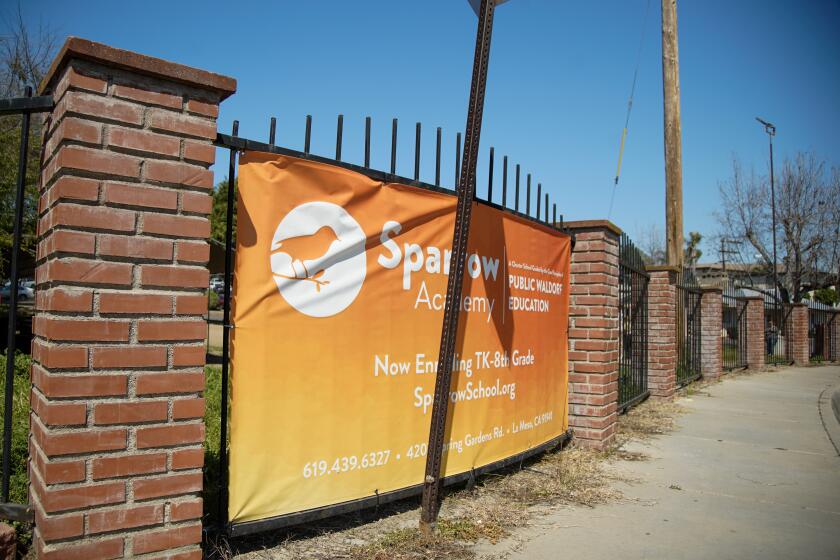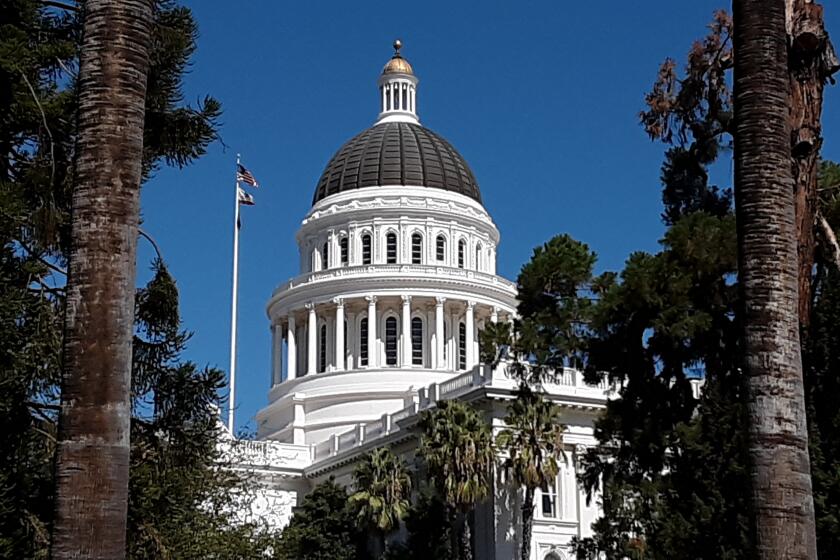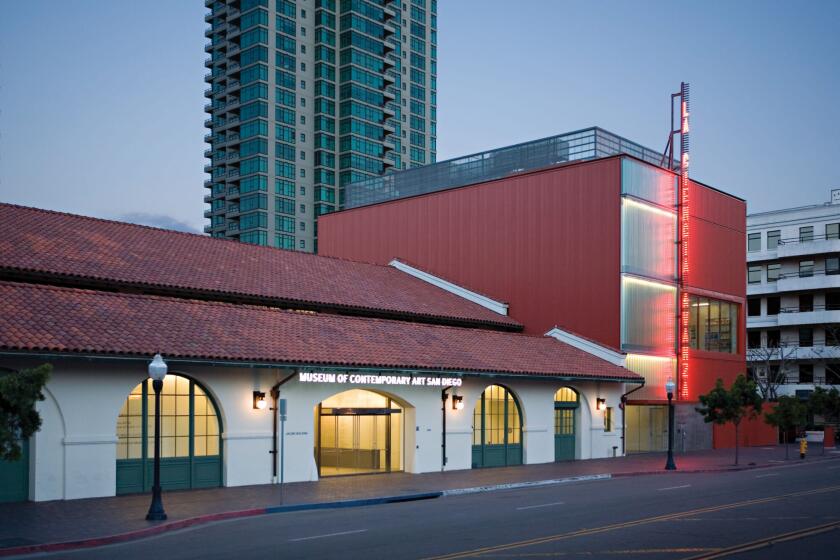Some small school districts profit from charter schools
The charter school self-dealing scheme alleged in a recent San Diego County indictment is the latest example of how legal loopholes incentivize small school districts to provide little to no oversight of charter schools, critics say.
Prosecutors accused two charter school leaders, Sean McManus and Jason Schrock, of A3 Education, of creating a network of 19 schools that effectively funneled $50 million in public funds into their own pockets. All 11 named defendants in the indictment, except for McManus, have pleaded not guilty. McManus is at large, prosecutors say.
The A3 charter schools were all online schools, authorized to operate by small school districts, which were supposed to hold them accountable.
The districts were paid by the charter schools to oversee them, but they faced few repercussions if the charter schools and their many students did poorly. Most of those students do not live in the authorizing districts.
The districts “are not incentivized to do any meaningful oversight, because they’re getting paid to let (charter schools) exist,” said Sarah Sutherland, an attorney representing some districts in lawsuits against such so-called satellite charter schools and their authorizers.
Three of the A3 charter schools were authorized by the Dehesa School District in east San Diego County. Dehesa is a small district with about 140 students who attend its single elementary school.
The district also includes more than 11,000 students reportedly enrolled by the nine charter schools Dehesa authorized. Most of those students don’t live in the district.
The San Diego Union-Tribune asked Dehesa School District about its authorizing and oversight practices last week, but the district said it won’t have time to answer until after the end of the school year.
No consequences
Charter schools are independently-run, publicly-funded schools that have more freedom to experiment in education than typical district schools.
The job of holding charter schools accountable rests largely on each charter school’s authorizer. Most charter schools are authorized by district school board, though some are authorized by a county school board or the State Board of Education. The authorization must be renewed every five years.
Typically school districts are cautious about authorizing charter schools, since charter schools usually compete with them for students and state funding.
But some districts and charter schools get around that with a loophole in state law that lets charter schools to take students from outside their authorizing district.
A3’s Valiant schools, for example, were authorized by districts in three California counties, but Valiant claims to have students from 34 counties, according to its website.
Some say there’s a disconnect; the people affected by a charter school don’t live in the district that let the charter school operate.
“If those schools fail, you don’t have to deal with any of the consequences,” said Clare Crawford, senior policy analyst with In the Public Interest, an Oakland organization that has criticized charter schools.
The Dehesa board has not denied a charter school application since at least January 2017. Its charter schools have shown poor academic results, according to state data.
Last year, all of Dehesa’s charter schools had a combined high school graduation rate of 35 percent, compared to the state’s 83 percent average.
Only 7 percent of the high school graduates from Dehesa’s charters met course requirements to enter a University of California or California State University school, compared to the state average of 50 percent.
There has been increased attention in Sacramento to holding charter schools and their authorizers more accountable.
State Assembly 1507, for instance, would close the out-of-district charters loophole and forbid charter schools from opening such satellite locations. It passed the Assembly on May 13.
Another bill, AB 1505, would largely limit authorization to school districts, locking county boards and the state school board out of the process.
“If the charter’s right in your backyard, you’re gonna be more familiar with it,” said Assembly Education Committee Chair Patrick O’Donnell, who is sponsoring AB 1505. “You’re going to want to make sure there’s a significant amount of oversight, and that they’re serving the needs of your community.”
On Friday, the state superintendent released a task force report with multiple recommendations to strengthen charter school oversight, including barring districts from authorizing charter schools outside their boundaries.
Cashing in on authorizing
District school boards, county school boards and the State Board of Education collect fees from charter schools to pay for oversight.
Small school districts who have limited ways to grow their revenue have capitalized on oversight fees as a way to pad their budgets, critics say. The more charter schools they have and the more students those charter schools enroll, the more revenue school districts can collect.
This is what prosecutors have alleged about Dehesa Superintendent Nancy Hauer, who was criminally charged for over-billing oversight fees for Dehesa’s charter schools. She pleaded not guilty and denied the charge on May 29.
But a review of Dehesa School Board’s minutes shows that Dehesa approved several charter schools with the condition that the schools pay Dehesa 3 percent of the schools’ revenue for oversight fees - which is above what state law allows in most cases.
State law limits oversight fees to 1 percent of a charter school’s revenue, unless the authorizer provides the charter school substantially rent-free facilities. In that case, authorizers can charge up to 3 percent.
From 2017 to 2018, when the board voted to approve the charters for Pacific Coast Academy and Diego Hills Central, and when it voted to renew the charters for the California Academy of Sports Science and the Method Schools, the agenda item for each charter petition stated Dehesa would receive a 3 percent oversight fee.
All of Dehesa’s charter schools are primarily or entirely online schools, rather than classroom-based.
The oversight fees are meant to reimburse authorizers for the actual costs of oversight.
Prosecutors alleged that, in Dehesa’s case, the oversight fees served as an incentive for the district to not hold charter schools accountable. As the charter schools’ enrollment increased, so did the district’s revenues from oversight fees, prosecutors said.
Dehesa charged its charter schools a total of more than $2 million last school year, which exceeded the district’s payroll, prosecutors said.
On March 25 - about two months before Hauer was indicted and the same month the district hired a law firm to ensure compliance with charter school laws - Hauer wrote letters to the leaders of eight of Dehesa’s nine charter schools, saying Dehesa would lower its oversight fees to no more than 1 percent. The board voted unanimously to approve the reduction.
Get Essential San Diego, weekday mornings
Get top headlines from the Union-Tribune in your inbox weekday mornings, including top news, local, sports, business, entertainment and opinion.
You may occasionally receive promotional content from the San Diego Union-Tribune.


